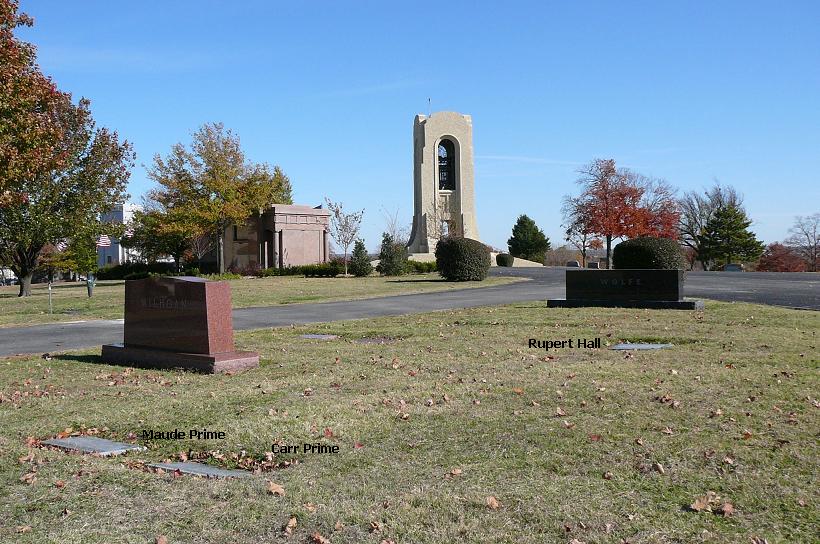in the lobby of the Muehlebach Hotel. The men discovered they shared a mutual love of vocal harmony. Together they
bemoaned the decline of that all-American institution, the barbershop quartet, and decided to stem that decline. Signing
their names as "Rupert Hall, Royal Keeper of the Minor Keys, and O.C. Cash, Third Temporary Assistant Vice Chairman,"
of the "Society for the Preservation and Propagation of Barber Shop Quartet Singing in the United States" [sic], the two
invited their friends to a songfest on the roof garden of the Tulsa Club, on April 11, 1938.
Twenty-six men attended that fi rst meeting, and returned the following week with more friends. About 150 men attended
the third meeting, and the grand sounds of harmony they raised on the rooftop created quite a stir. A traffi c jam formed
outside the hotel. While police tried to straighten out the problem, a reporter of the local newspaper heard the singing,
sensed a great story, and joined the meeting.
O.C. Cash bluffed his way through the interview, saying his organization was national in scope, with branches in St. Louis,
Kansas City and elsewhere. He simply neglected to mention that these "branches" were just a few scattered friends who
enjoyed harmonizing, but knew nothing of Cash's new club.
Cash's fl air for publicity, combined with the unusual name (the ridiculous initials poked fun at the alphabet soup of New
Deal programs), made an irresistible story for the news wire services, which spread it coast-to-coast. Cash's "branches"
started receiving puzzling calls from men interested in joining the barbershop society. Soon, groups were meeting
throughout North America to sing barbershop harmony.
SPEBSQSA—now known as the Barbershop Harmony Society—was born, and achieved international stature in 1944
when the fi rst Canadian chapter was chartered in Windsor, Ontario. Barbershop harmony was largely confi ned to North
America until the late 1950's when Harry Danser of Sussex, England heard the famous Buffalo Bills in Meredith Willson's
The Music Man in New York. He took an armload of recordings across the pond and founded the Crawley Barbershop
Harmony Club, which in 1974 became the British Association of Barbershop Singers, the fi rst affi liate outside North
America. Barbershop harmony is also sung by over 25,000 women worldwide in Sweet Adelines International, founded in
1945, and in Harmony, Inc, founded in 1957.
Barbershop is not just a musical genre, but for those who really love it, it's a whole way of life, forging bonds of friendship
all over the world.
in the lobby of the Muehlebach Hotel. The men discovered they shared a mutual love of vocal harmony. Together they
bemoaned the decline of that all-American institution, the barbershop quartet, and decided to stem that decline. Signing
their names as "Rupert Hall, Royal Keeper of the Minor Keys, and O.C. Cash, Third Temporary Assistant Vice Chairman,"
of the "Society for the Preservation and Propagation of Barber Shop Quartet Singing in the United States" [sic], the two
invited their friends to a songfest on the roof garden of the Tulsa Club, on April 11, 1938.
Twenty-six men attended that fi rst meeting, and returned the following week with more friends. About 150 men attended
the third meeting, and the grand sounds of harmony they raised on the rooftop created quite a stir. A traffi c jam formed
outside the hotel. While police tried to straighten out the problem, a reporter of the local newspaper heard the singing,
sensed a great story, and joined the meeting.
O.C. Cash bluffed his way through the interview, saying his organization was national in scope, with branches in St. Louis,
Kansas City and elsewhere. He simply neglected to mention that these "branches" were just a few scattered friends who
enjoyed harmonizing, but knew nothing of Cash's new club.
Cash's fl air for publicity, combined with the unusual name (the ridiculous initials poked fun at the alphabet soup of New
Deal programs), made an irresistible story for the news wire services, which spread it coast-to-coast. Cash's "branches"
started receiving puzzling calls from men interested in joining the barbershop society. Soon, groups were meeting
throughout North America to sing barbershop harmony.
SPEBSQSA—now known as the Barbershop Harmony Society—was born, and achieved international stature in 1944
when the fi rst Canadian chapter was chartered in Windsor, Ontario. Barbershop harmony was largely confi ned to North
America until the late 1950's when Harry Danser of Sussex, England heard the famous Buffalo Bills in Meredith Willson's
The Music Man in New York. He took an armload of recordings across the pond and founded the Crawley Barbershop
Harmony Club, which in 1974 became the British Association of Barbershop Singers, the fi rst affi liate outside North
America. Barbershop harmony is also sung by over 25,000 women worldwide in Sweet Adelines International, founded in
1945, and in Harmony, Inc, founded in 1957.
Barbershop is not just a musical genre, but for those who really love it, it's a whole way of life, forging bonds of friendship
all over the world.
Family Members
Sponsored by Ancestry
Advertisement
Records on Ancestry
Advertisement











